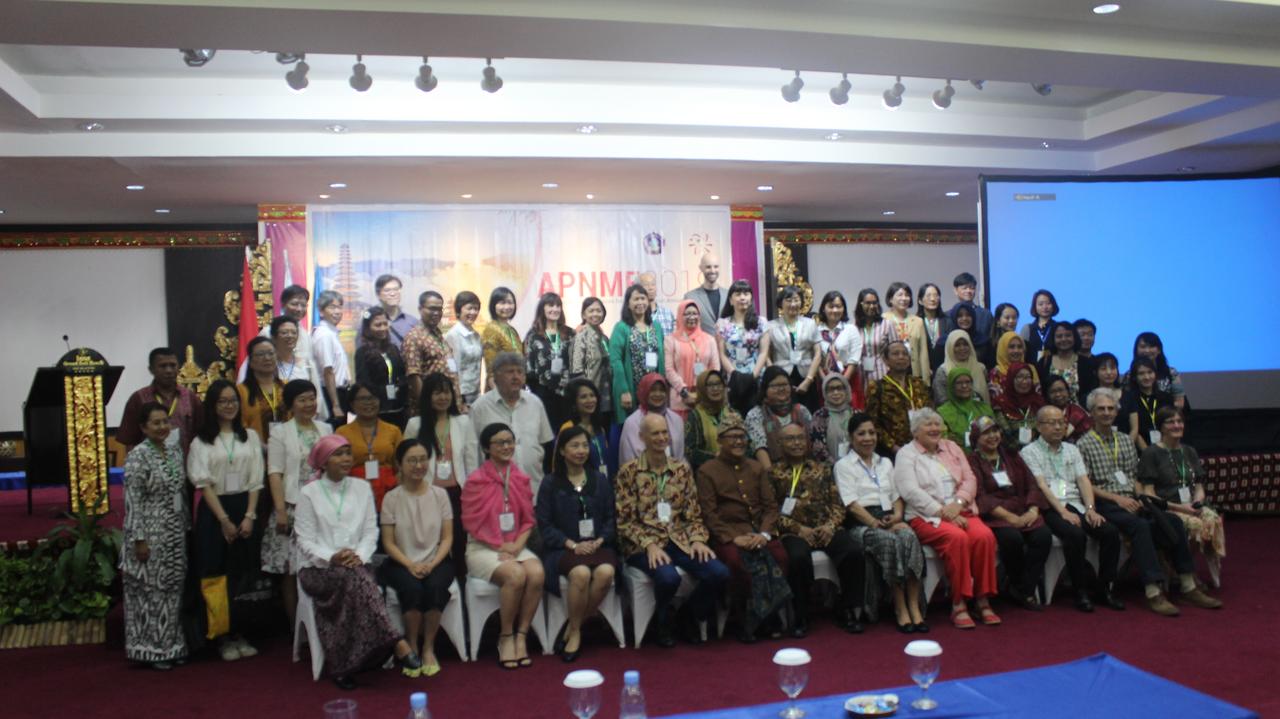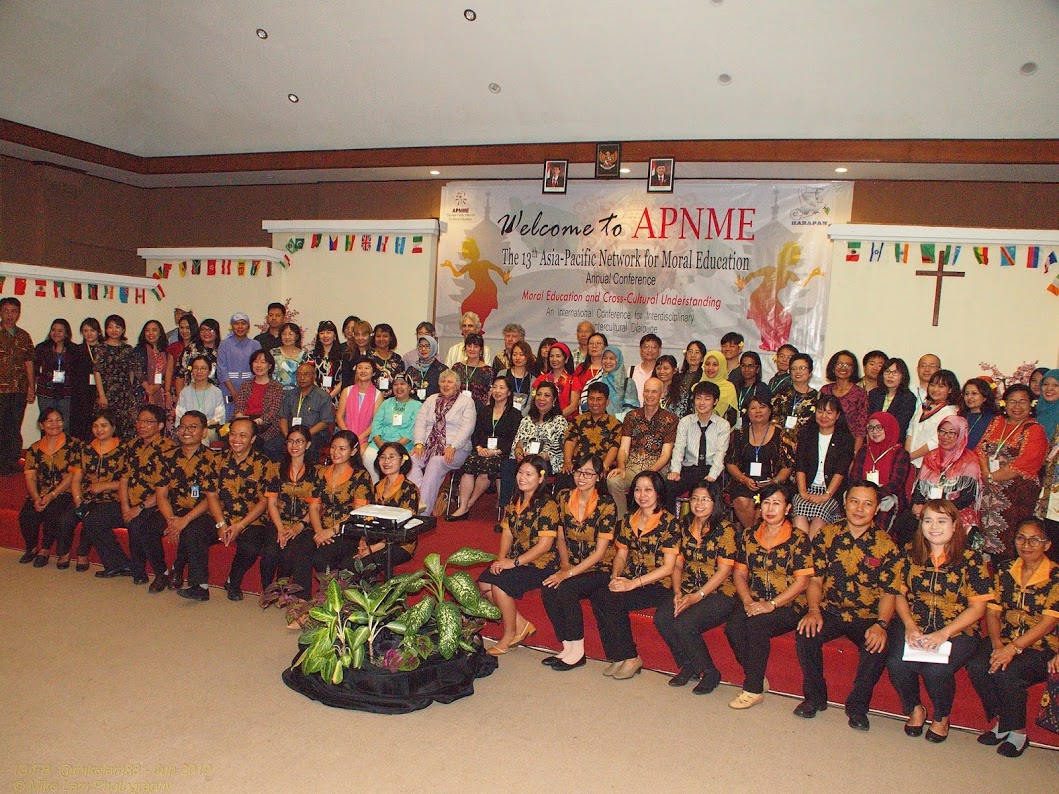The Asia-Pacific Network for Moral Education
Conference Theme:
Moral Education and Cross-Cultural Understanding
An International Conference for Interdisciplinary and Intercultural Dialogue
13th Annual Conference
26-30 June, 2019
Ganesha University of Education (UNDIKSHA), Bali, Indonesia
You could download the 2019 conference's photos at:
1. https://postimg.cc/gallery/2227mjgca/
2. https://postimg.cc/gallery/og8cahve/
3. https://postimg.cc/gallery/uci3j25s/
4. https://photos.app.goo.gl/5yHekxC3UxYeM3Pp8


Welcome to Bali, Indonesia!
The 2019 conference of the APNME will take place in Bali, a famous tourist island in Indonesia, from June 26 (Wednesday) to June 30 (Sunday). Educators and researchers who are interested in exploring and fostering the role played by moral values in education are warmly invited to join us for this special occasion.
The small island of Bali, just to the east of Java, Indonesia’s main island, has a very rich multicultural population and history. For this reason, and also due to its beautiful beaches—in particular Kuta Beach--it has become one of the world’s best-known vacation destinations for tourists. Indonesia has many Muslims but also some Christians, Buddhists and Hindus, and Bali is home to most of the country’s Hindu minority. The Hindu temples, mostly some distance away from the beaches, are definitely worth a visit, as are some of
the nature preserves. Traditional and modern dance performances, Balinese music, local films and local paintings can also be easily enjoyed here.
Moral Education and Cross-Cultural Understanding
An International Conference for Interdisciplinary and Intercultural Dialogue
Moral education continues to be a vital part of every culture and society, and especially in this time of increasing uncertainty and moral confusion. While ancient religious and political traditions remain firm in many parts of the world , we still have wars attributed to religious and political differences. The Internet and social media are having an ever-widening influence, but are they promoting a “world community” or leading to further fragmentation? Moral education in our schools, and at the family, village, city and national levels, continues to be a crucial part of every society.
Likely topics for presentations may include the following:
- To what degree may increasing individualism have influenced traditional moral, familial and social-communal values? How has the rise of the Internet and social media influenced these? How can moral and civic education, in the home and in school, reinforce a young person’s sense of his/her own essential worth, and of his/her responsibility to family, friends and community?
- What may be the fundamental role of moral education when it comes to our relationships withother cultures, ethnic minorities and with the non-human members of our natural environment? How can the fundamentally important moral component be still further emphasized in ecological education?
- What might be the role of traditional (ancient) cultural texts—myths, poems, songs, stories—in moral and civic education? How may these be related back to our ancestors’ thinking and to the harmony between human beings and nature?
- What is the nature of “moral dilemmas” in both Western and Asian-Pacific cultures, and to what degree may these dilemmas differ? Does this also raise the question of the relevance of philosophical and psychological theories, which may themselves come from a particular regional and cultural context? Is it possible to identify certain core values that are “universal”?
- How can we continue to strengthen moral, civic and environmental education in our families, schools, towns and cities? What are some of the best methods that teachers may use in their classrooms—in kindergarten, primary and secondary schools, and universities—to develop and strengthen their students’ moral values, their capacity for compassion, for understanding and caring for others?
While priority will be given to presentations addressing these topics, any that are concerned with moral and civic education will be welcomed. We sincerely welcome to our conference all those who care about exploring and enhancing the role of moral education, through theory and practice, in the Asia-Pacific region and in the world.
Details about the submission of abstracts can be found in the Call for Proposals. Guided by this theme, we will reflect on and discuss how best to enhance moral values education in the Asia Pacific region and globally.
|
Important Dates to keep in mind:
|
The Conference programme will be posted on the website. It will include paper presentations, symposia, posters, the keynote speeches and roundtable discussions, and will also allow for ample free time to see the sights of Bali.

